VERDI AS A YOUNG MAN
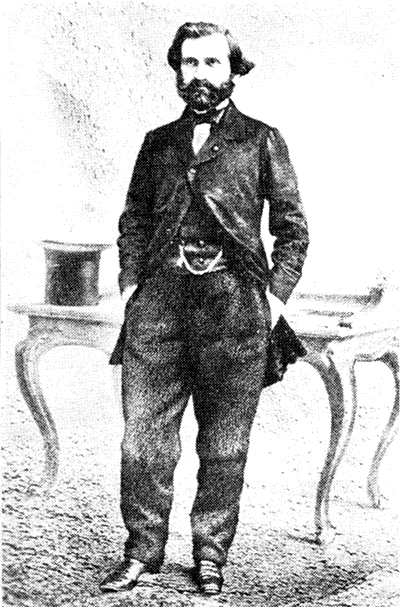
So, as the years went by, he kept on learning more and more, doing his work well and always preparing himself for better things. Then one day he was ready to begin to compose the operas that made him famous.
Some time when you read the full list of Verdi's operas you will learn that he wrote thirty. The first was performed in 1839, when he was twenty-six years old, and the last in 1893, when he was eighty. You will not need to remember the titles of them all, but you must know the names of the great ones, for one day you will see and hear them performed.
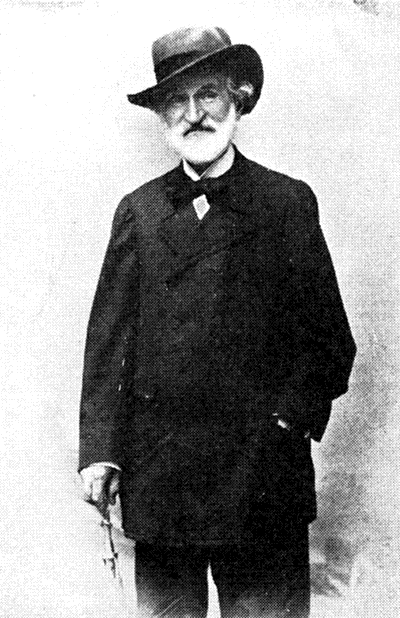
VERDI IN OLD AGE
Here are the principal ones:
Ernani, Rigoletto, Il Trovatore,
La Traviata, Sicilian Vespers, Othello,
Aida, Masked Ball, Falstaff.
Do you know that of one of Verdi's operas the scene is laid in our country? The MASKED BALL was first entitled Gustavo III. But the authorities would not allow reference to certain political matters in it. Therefore the libretto (or story) of the opera was changed, and the scene laid in Boston, Massachusetts. One of the characters was the Governor of Boston, a humorous matter to us, for there never was any such official.
Another famous opera by Verdi, the scene of which is laid in a foreign country, is Aida. It was written for the Khedive of Egypt, and first performed in Cairo in 1871, when the composer was fifty-eight years old.
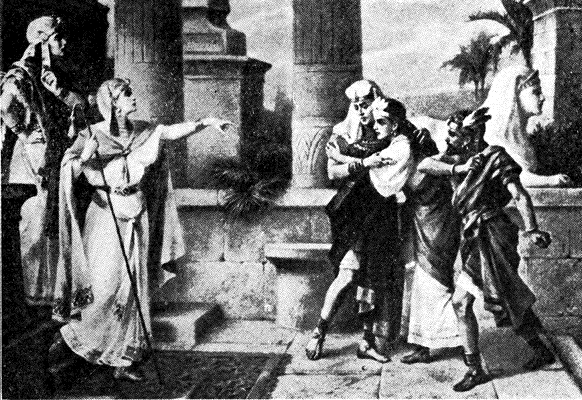
A SCENE FROM AÏDA
After Verdi had composed Aida he wrote no more operas for sixteen years. Then to the great surprise of all the world he wrote two others, the finest of them all—Othello and Falstaff.
Meanwhile he was a farmer. He planted, harvested, helped his tenants, urged them to cultivate the land carefully. He bought all kinds of American farming machinery to show the Italians how to cultivate the ground to best advantage.
The great man, who was once a simple little boy, died in 1901, on January 27, which day is the anniversary of Mozart's birth.
All his life long Verdi had succeeded, doing a little more and a little better each year, so that, at the end of his life, he was able to do a truly wonderful thing: namely, to build a home where musicians—who had not succeeded in life—could find a comfortable abiding place in their old age.
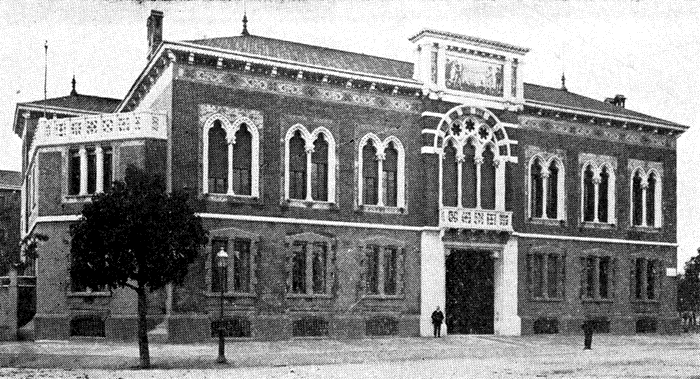
VERDI HOME FOR AGED MUSICIANS
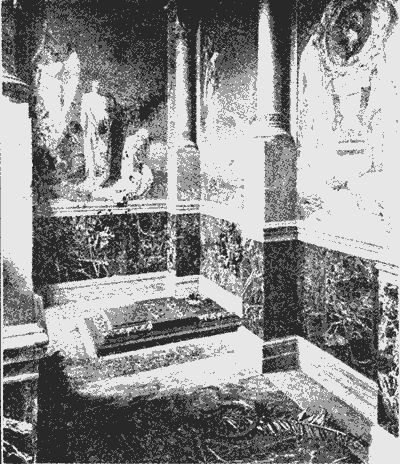
VERDI'S TOMB
In this House are many souvenirs of the great Italian. Here, too, is the tomb of Giuseppe Verdi.
Verdi was loved by his fellow-countrymen. His music is their joy—and ours—and will so remain for years to come; perhaps forever.
The great sculptor, Vincenzo Gemito, has molded wonderful bronze busts of Verdi, which shows us how the little boy of Roncole grew to be a man of world renown.
Please visit us for two weeks of listening to Verdi's music; the best, most fun videos of live performances. they're really cool, I promise! See you Monday!
No comments:
Post a Comment